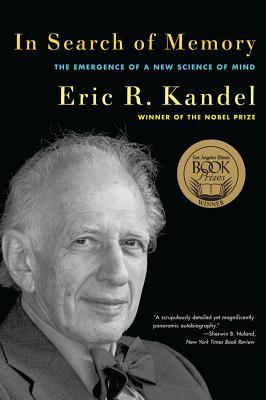欢迎来到相识电子书!
标签:神经科学
-
In Search of Memory
From Publishers Weekly When, as a medical student in the 1950s, Kandel said he wanted to locate the ego and id in the brain, his mentor told him he was overreaching, that the brain had to be studied "cell by cell." After his initial dismay, Kandel took on the challenge and in 2000 was awarded a Nobel Prize for his groundbreaking research showing how memory is encoded in the brain's neuronal circuits. Kandel's journey into the brain spans five decades, beginning in the era of early research into the role of electrical currents flowing through neurons and ending in the age of genetic engineering. It took him from early studies of reflexes in the lowly squid to the founding of a bioengineering firm whose work could some day develop treatments for Alzheimer's and on to a rudimentary understanding of the cellular mechanisms underlying mental illness. Kandel's life also took him on another journey: from Vienna, which his Jewish family fled after the Anschluss, to New York City and, decades later, on visits back to Vienna, where he boldly confronted Austria's unwillingness to look at its collusion in the Final Solution. For anyone considering a career in science, the early part of this intellectual autobiography presents a fascinating portrait of a scientist's formation: learning to trust his instincts on what research to pursue and how to pose a researchable question and formulate an experiment. Much of the science discussion is too dense for the average reader. But for anyone interested in the relationship between the mind and the brain, this is an important account of a creative and highly fruitful career. 50 b&w illus. (Mar.) Copyright © Reed Business Information, a division of Reed Elsevier Inc. All rights reserved. --This text refers to the Hardcover edition. From Scientific American Kandel, who received the Nobel Prize in 2000, traces advances in understanding learning and memory. His own groundbreaking findings showed that learning produces changes in behavior by modifying the strength of connections between nerve cells. He conveys his immense grasp of the science beautifully, but it is his personal recollections that make the book especially compelling. He begins with his searing childhood memories of the German annexation of Austria and his family’s escape to the U.S. when he was nine. And he ends with a conference he organized in Vienna to examine the strange reluctance of Austria (unlike Germany) to acknowledge its role in the Holocaust. One comes away in awe of the scientific advances—and of a life well and fully lived. Editors of Scientific American --This text refers to the Hardcover edition. -
影响大脑的7个坏习惯
《影响大脑的7个坏习惯》内容简介:大脑运转状态良好、能力发挥最佳,一直是人类的追求!但我们的大脑并不好被控制,它也有自已的先天本能与后天运作惯性,也会受很多因素的影响。大多数人总会忽略这点,只是一相情愿地去“开发”、“锻炼”自已的大脑,而真正影响大脑运作的坏习惯,却一个都没认识到,更谈不上改掉!于是,这些大脑时常运转欠佳,脑力发挥失常,且总是压力重重、疲于奔命。 而另一些成功人士的最大优势,并不在于他过人的精力或聪明才智,而是懂得了解它与生俱来的本能,顺应它的后天形成的惯性,找到并丢掉那些坏习惯,从而不费吹灰之力彻底发挥大脑潜力,轻轻松松地让大脑做出最佳表现,顺利突破困境,达到目标。
热门标签
下载排行榜
- 1 梦的解析:最佳译本
- 2 李鸿章全传
- 3 淡定的智慧
- 4 心理操控术
- 5 哈佛口才课
- 6 俗世奇人
- 7 日瓦戈医生
- 8 笑死你的逻辑学
- 9 历史老师没教过的历史
- 10 1分钟和陌生人成为朋友


